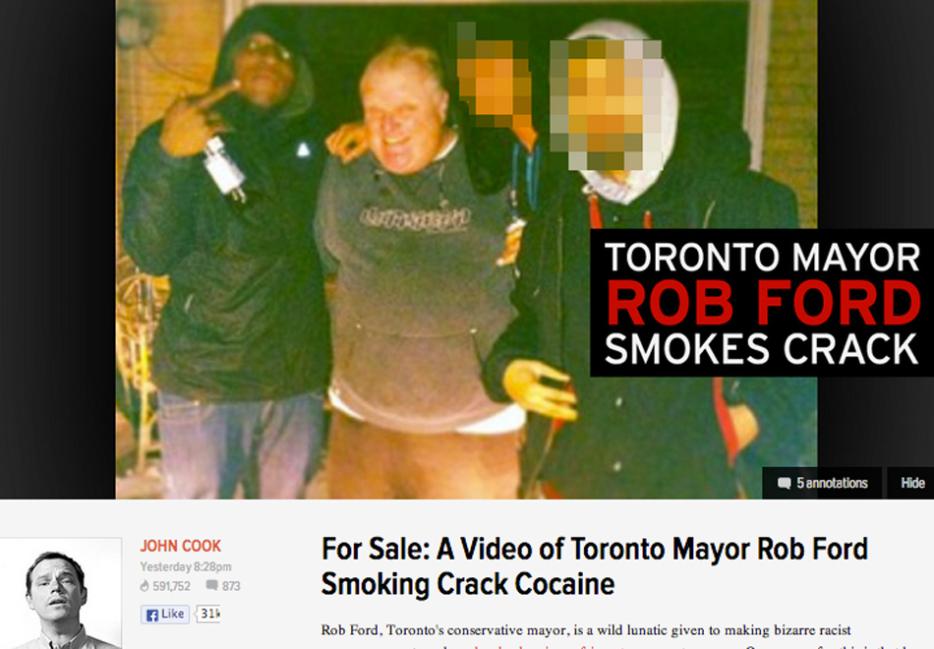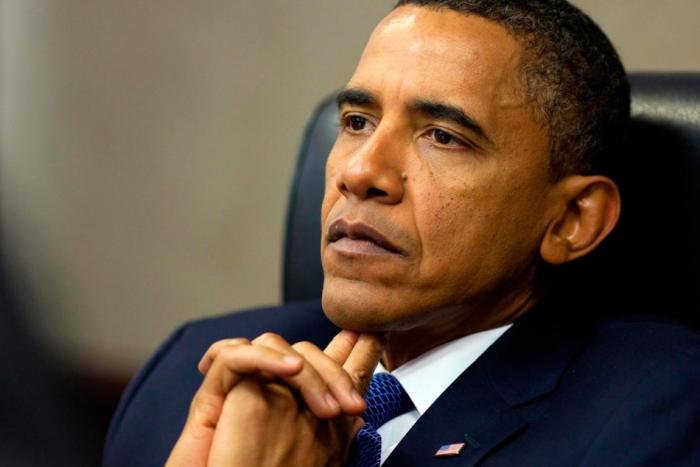What are we talking about, when we talk about Rob Ford? Class, I think, is always there, as is irony. At their core, the most spectacular Ford stories hinge on a deep mixing: the privileges of white, masculine power with the signifiers of poverty and powerlessness. The big-necked guy in an SUV, straight-talking, hard-drinking—and meanwhile, he’s crushing the union. Arguably, Ford started this himself, running for office on a regular-guy schtick that endeared him to working-class voters in (but mostly around) the GTA. His platform traded in the tropes of honesty and hard work, longstanding blue-collar values that, through another lens, we could understand as stereotypes.
But while Ford expressed certain “positive” blue collar values, anti-Ford media and other critics tarred him with negative stereotypes of working-classness, and thus the irony of Ford took hold. The public image of Ford is pure white trash, in its specific male incarnation. Obesity, bigotry, recklessness, and illiteracy have long been slurs against blue-collar men; Ford checks every box, and those for more recent tropes—DUIs, football, McDonald’s—too. He even fucks up according to white trash script, in an excessive, bodily way: overeating, behaving (what’s been described by witnesses as) shitface-drunk in public, allegedly grabbing a woman’s ass at a fancy party. That Ford rarely apologizes, or even seems aware that he’s offended, makes these scandals seem less like fuck-ups than a certain style of governing: expressions of Ford’s particular power. This is why, occasionally, Ford coverage admits pangs of sympathy, even admiration. White trash is nothing if not audacious.
The idea of smoking crack while in office is pretty audacious, but here, Fordean irony takes on a racial cast. “I have very mixed feelings about Robert ‘Bubbles’ Ford,” wrote a friend of mine on Facebook this morning after the crack story broke. “White millionaires like to get high off high-quality drugs. It's kind of authentic in an odd way.” Read a random tweet: “Ford is so ghetto.” Are we scandalized by the Ford crack story because it’s hard drugs, or because it’s crack: a drug associated, in legend if not fact, with urban black poverty? I don’t think we’d be as outraged, if the drug were cocaine, and the setting a posh hotel. Because race is the culmination of all privilege narratives, because when we talk about power we are always, on some level talking about race, it’s fitting that the most outrageous Ford story of all is the most racialized one. So potent is the association of crack with black masculinity that Gawker bolstered the breaking story with a photo of Ford grinning redly between three young guys, all seemingly dark-skinned, all wearing hoodies, one—recent murder victim Anthony Smith—middle finger up: fuck you! The pic, provided by the story’s source, was not a capture from the video. But it was offered as proof, and we seem to have taken it as such, so meaningful is this image of a white politician with three sweatshirt-clad black men. The tipster understood how the signals would be read, and he was right.
Crack is the ultimate gesture in Ford’s history of irony, white-guy power wrapped around and through one of the most fraught—and dangerous—symbols of powerlessness. Among its other consequences, it spotlights the bigger, sadder irony in the workings of privilege: someone like Ford can smoke crack and face “scandal,” while black or poor people face sentencing or worse. And while we talk about Ford’s fat rolls and crack pipe—really talking, of course, about race and class and power—there’s another story still: that Ford has in fact used his privilege in mundane, entirely typical white-rich-guy ways: slashing funding for community programs; misappropriating city funds; begging off the job. I’m not sure if the crack allegations will bring him down, though something will. Like the mythic political figures before him—and that’s where he belongs, I think, with the corrupt emperors of Rome and pervert popes of the middle ages and Silvio Berlusconi—Ford will certainly fall as he ruled, swathed in story. Too bad it’s not the right story, and not for the right reasons.






